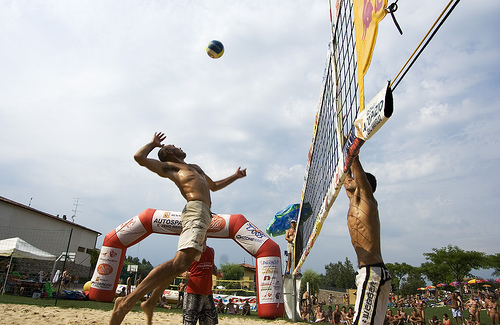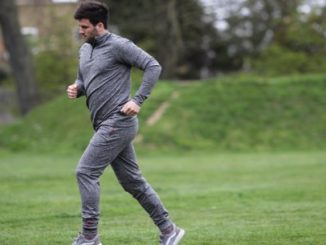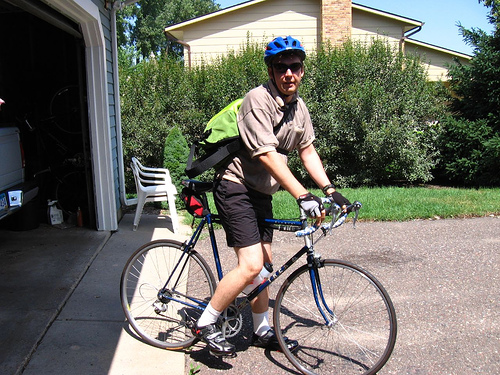
by Samantha Peters
Summer is here. This means that many student athletes will be spending their free time playing sports. Sports are a great way to stay active and stay out of trouble. However, studies have shown that thousands of athletes get injured each year while playing a sport.
Many summer sporting injuries are the result of poor preparation, heat-related illness, and dehydration.
The good news is that many of these problems can be prevented.
Below are some tips for preventing injury, heat-related illness, and over-exhaustion:
Try to Practice in the Morning or in the Evening
Exercising in the summer heat can be very dangerous. That is why it is best to exercise in the morning or in the evening. Students who cannot practice in the morning or evening, should try to avoid working out between the hours of 10:00 a.m. and 4:00 p.m. Those are usually the hottest times of the day, when an athlete who works out may be risking a heat stroke. Symptoms of heat stroke include dizziness, dry skin, and rapid pulse.
If you absolutely must exercise during the hottest parts of the day, be sure to consume lots of water and electrolytes and take frequent breaks.
Heat stroke usually occurs not so much because of the heat but because someone has been pushed too hard and exerted too much energy. The sun should never be underestimated, and midday during the summer is when it is most dangerous.
Drink Plenty of Water
It is very important for people to make sure that they drink water before, during and after exercising. Drinking water frequently will help prevent dehydration and keep the body cool. It also helps you to replenish natural minerals that exit the body when sweating.
Experts recommend consuming 17 to 20 ounces of water every hour that one exercises.
Additionally, people who will be exercising for more than 90 minutes need to drink a sports beverage, such as Gatorade or Powerade, or a beverage that contains electrolytes such as sodium, potassium, calcium, and magnesium. Electrolytes replenish necessary vitamins and minerals in the bloodstream and keep your cells positively charged. Anytime you sweat excessively, your body probably needs electrolytes.
Coconut water is also an excellent option for acquiring electrolytes.
Always Stretch Before and After Exercising
Many athletes make the mistake of jumping right into their workouts without stretching. Neglecting to stretch can greatly increase one’s chances of getting injured. Athletes also need to make sure that they stretch after they finish exercising. Each stretch should last between 20 and 30 seconds.
Not only can stretching help you to prevent major injury, it will also help you to avoid cramping up. If you watch any professional sporting event, you’ll notice the trainers vigorously stretching out the athletes before a game. What you don’t see is that after the game, in the locker rooms, those same athletes are being stretched again.
Get a Physical Before Working Out
Many people who get injured while playing sports have an underlying medical condition. A pre-sports physical can help identify common medical conditions that make a person more susceptible to getting injured. Many doctors and medical practitioners perform thorough assessments and may recommend that people who have serious health conditions avoid playing certain sports.
Getting a physical can also help you to differentiate parts of the body that are sore because of exercise and parts of the body that are sore because of a hyper-extended tendon, ligament or muscle strain. Often times, normal aches and pains can conceal more serious problems that, if not identified, can lead to major injury.
Avoid Exercising to the Point of Exhaustion
There is nothing wrong with pushing oneself to work out harder. However, athletes should never work out to the point of exhaustion or, worse, passing out. This kind of exercise can increase a person’s chance of getting injured. It is also wise to schedule one or two days of rest per week, which allows the muscles a chance to recuperate.
It’s important to remember that your body is a complex web of systems that require one another in order to function correctly. So even if your muscles are tip-top shape, they still need the rest of your body to be in optimal health in order to perform.
Exercising to the point of exhaustion can offset vital processes in your circulatory system. Without properly oxygenated and circulating blood flow your muscles could be endangered.
Most of the thousands of injuries that occur each summer can be prevented. Athletes need to first make sure that they receive clearance from a physician. They also need to practice in the evening or morning, stay hydrated, stretch and avoid exercising to the point of exhaustion.
(This guest post is written by Samantha Peters, a blogger and health enthusiast who enjoys writing about how to stay active and healthy. She is also working with New York cardiologists to spread awareness about heart disease and risks of heat strokes during summer athletic activities.)






Be the first to comment